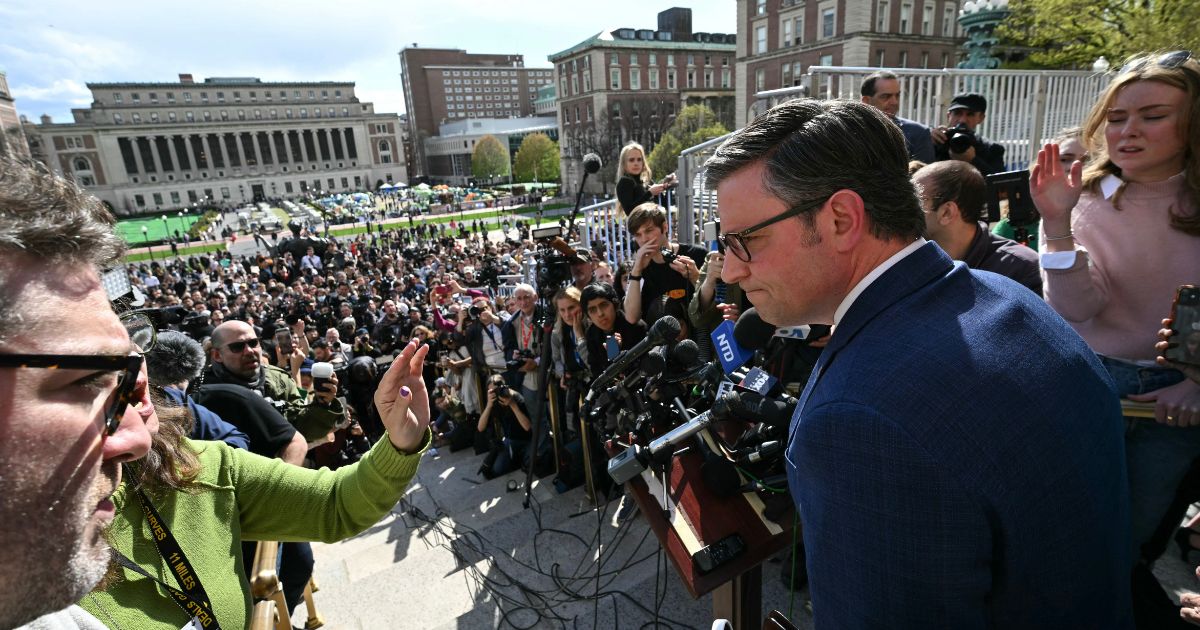Dietitian Fact-Checks 13 Popular Weight Loss Tips
Like myths, there can be some truth to these weight loss claims. However, an important skill to develop is the ability to separate fact from fiction. Some key questions to ask yourself are; “does that sound too good to be true?” “Does this make the science sound easy to understand?” and lastly, “what, if any, sources are they citing?”
Science, especially when it comes to the science of metabolism and human biology, is complicated. It takes years, and several degrees, to understand it enough to be qualified to communicate it to the public. Experts in this field are also the first to tell you they don’t know everything. I am a dietitian with a master’s degree specializing in research on weight change and metabolism, and there are many things I still don’t know or understand.
Science is a complicated, frustrating, complex, and beautiful field. If you read something that sounds too easy or simple, then it probably is. Also, the quality of the sources where you get your information is essential. If someone cites scientific information that sounds too good to be true and doesn’t put where they are getting that information, that is a red flag. Below, you will see that all claims and facts are supported by reputable websites or research.
Claim: Drink Black Coffee—Caffeine Will Boost Your Metabolism.
Caffeine has been shown to boost your metabolism and stimulate fat burning. However, taking these results with a grain of salt is essential, as this study only had 10 participants. Coffee drinking, with its combination of caffeine and other ingredients, has been shown to increase your resting metabolic rate, which may lead to minimal fat burning. Coffee can be associated with promoting weight loss, but that is a correlation, not causation, which means that coffee drinking is associated with lower weight but does not cause weight loss. All this information suggests that coffee may boost metabolism and stimulate fat burning, but we still aren’t sure if it directly causes weight loss.
Claim: Hang a Mirror in Front of Your Dining Table—Watching Yourself Eat May Reduce the Amount of Food Consumed.
I was surprised to hear that there is research to back this one up! Participants who ate in front of a mirror tended to eat less than people who didn’t. Researchers predicted that this was either due to a desire to eat healthier when one is being “watched” or watching yourself eat can make you more self-aware of what you eat. Was this intake reduction enough to make participants lose weight over long periods? This critical question remains unanswered.
Claim: Practice Intermittent Fasting for Weight Loss.
Intermittent fasting has shown some promise in weight loss trials. However, since intermittent fasting can be an unpleasant diet (people typically like eating when hungry instead of only eating on a strict schedule), most weight loss results are not sustained for long periods. Any weight reduction from intermittent fasting is not from reducing muscle mass. Decreasing muscle mass (fat-free mass) will decrease metabolism, hindering weight loss efforts. Your muscle tissue is considered your most metabolically active tissue; therefore, the advice is typically to increase muscle mass, not decrease it.
Claim: Replace Your Normal, High-Calorie Protein Intake With Whey Protein Powder.
Many people want to add more protein to their diet to build muscle mass. As far as protein supplementation, whey protein is a great option. Not only is it loaded with essential amino acids (essential meaning our body doesn’t produce them, so it is essential to get from our diet), but it is also highly digestible. So, in this case, whey is an excellent choice for supplemental protein compared to other sources, such as soy. However, this is not a total replacement for protein sources from your diet, such as meat, nuts, and seeds. These protein sources come with a lot of other good stuff, like vitamins, minerals, fats, and other nutrients that are irreplaceable with powders alone.
Claim: Chew More Slowly. Your Brain Can Better Signal to Your Stomach That You’re Full and Prevent Overeating.
An intricate and complex system communicates between your gut and brain to signal fullness. This process takes time. The prevailing theory is that by eating slowly, you are giving your brain and gut time to talk to each other through your hormones to signal fullness and stop eating. So slowing down might help you eat less! But, like the claim about watching yourself eat, whether or not that can lead to weight loss is still not fully known. Slowing down and spending more time enjoying your food can also be a mindful practice. There is also research that slowing down and mindfully eating can result in weight loss and increase the pleasure of a meal.
Claim: Spoil Food You Don’t Want or Need to Eat.
I am a big fan of intuitive eating practices. Research also suggests that intuitive eating practices are good for maintaining a healthy weight. There are even some associations with weight loss. So, if those leftovers are calling your name, go for it! If you are trying to lose weight, I would advise incorporating some veggies into the meal you are craving. For example, let’s say your leftovers are something calorie dense like alfredo pasta. Maybe you eat a portion of that pasta but then pair it with some veggies or a salad that you made. That way, you can still stick to your healthy eating and have something you crave.
Claim: Drinking Green Tea Can Enhance Fat Burning Due to Catechins and Caffeine Content.
I was surprised that there is some science to back up the synergistic effect between caffeine and catechins on increasing energy expenditure, but only by about 20 calories a day. So, while the first part of this claim is true, is it enough to cause substantial fat burning leading to weight loss? Probably not. Green tea is loaded with antioxidants, so there are plenty of other health benefits to incorporating it into your diet. But you will likely not lose weight if drinking green tea is the only lifestyle difference you make.
Claim: Practice Interval Training—Short Bursts of Intense Exercise Followed by Longer Stretches of Mild Exercise.
Interval training can be a great way to get your heart rate up. Increases in heart rate can lead to some weight loss. Interval training is also excellent if you only have 30 minutes to work out. However, studies comparing interval training to other kinds of training found comparable results. Meaning—any training plan you stick to (more than four weeks) might be good enough. So don’t worry if you hate interval training; there are plenty of other types of exercise that also reduce weight, as long as the activity increases your heart rate.
Claim: Get Used to and Accept the Feeling of Hunger. You Can’t Lose Weight Without Enduring Hunger.
As I mentioned earlier, I am a big fan of intuitive eating. The mentality of “get used to hunger” is far from it. If you are hungry but are trying to be more intentional about your food and weight, be mindful of the foods you are going for when you are hungry. Reaching for calorie-dense foods when you are snacking has been associated with weight gain. However, nutrient-dense foods like fruits, veggies, and small servings of nuts can be great snacks in-between meals when trying to lose weight.
This Healthy Mixed Berry Protein Smoothie is packed with nutrients, mixed berries & protein! Perfect on the go or snacking!!
Claim: Snack Often to Prevent “Metabolic Slowdown” Which Causes Your Metabolism to Stop if There’s Nothing to Digest.
Let’s start with the inaccuracy of this statement: your metabolism does not ever stop. Even when you are sleeping, your body is still burning and moving things around at a slower rate. Other things can slow down your metabolism (i.e. losing muscle mass, rapid weight loss, certain medications), but it never completely stops. Snacking is one way to boost your metabolism slightly, as eating engages your metabolism and tells it to get going. However, there are better ways to increase your metabolism besides snacking. For example, muscle mass is one of the biggest drivers of metabolism, so increasing that can be a great way to boost your metabolism.
Claim: Drinking Water 30 Minutes Before a Meal Helps Your Body Burn Calories Faster and Therefore Lose Weight.
Like the claim above, plenty of things can speed up your metabolism (working out, gaining muscle mass), but drinking water is not one of them. Numerous studies have attempted to show that drinking water can help lose weight. However, the belief is that it is likely not due to helping your body burn calories but because it makes you eat less at the next meal. There is also an age-old belief that sometimes you are not hungry, you are just thirsty so you should try drinking water first. However, there is no science to back up those claims. Most studies testing whether drinking water was related to weight loss were insignificant.
Claim: Plan Out All Meals for the Week and Cook and Store Them in Resealable Containers Ahead of Time. This Will Prevent You From Ordering Takeout Meals When You’re Too Tired to Cook.
Takeout and meals from restaurants tend to be high in calories, fat, and salt and can promote overeating. Therefore, limiting the number of times you eat out is a standard recommendation for weight loss. As a dietitian, meal prepping is one of my favorite tips for people trying to eat healthier! This statement above is a little more extreme than what I would recommend as you don’t have to plan every single one of your meals. But, having meals prepped, some veggies cooked, or even some fruits and veggies cut up for quick, easy snacks can be a great way to improve your diet. Convenience and the time it takes to cook on busy weeknights are some of the main barriers to eating healthier. Even prepping a couple of lunches on work days can minimize the number of times you eat out in a week.
Try this Fish and Asparagus en Papillote you can prep on a lazy Sunday for a productive week.
Claim: While Exercise Can Certainly Aid in Weight Loss, Your Diet Is More Important, and It’s Even Possible to Lose Weight Without Being Active.
This claim can be true or false. The relationship between nutrition and physical activity is the foundation for weight loss. According to the energy balance equation (science’s best way to explain this relationship), to lose weight, the energy you put into your body (eating) needs to be less than the energy output (through physical activity and just the calories you need to stay alive). The reason this is true and false is that it goes both ways. You could work out more and eat the same or work out the same and eat less to experience some weight loss. Unfortunately, this is another weight loss claim that is highly individualized. Research shows that the most effective weight loss strategies combine physical activity and nutrition and occur over sustained periods. So, the most effective diet and exercise routines are the ones you can do for a consistent amount of time.
" Conservative News Daily does not always share or support the views and opinions expressed here; they are just those of the writer."







